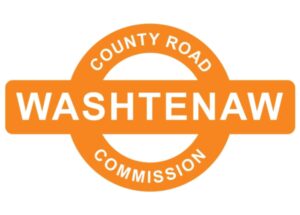(Publisher’s note: This is the first column by Len Pytlak, CPA, who will answer your personal finance questions.)
For my first column, I’m responding to a question from Marsha, who asked for ways to start paying down personal debt.
In the past, one of the top options for reducing debt was to get a home equity loan and use that to pay off other debt. There was a time when home equity loan interest rates were substantially less than credit card interest rates (and the interest was tax deductible — if you itemized your income taxes). But with home values what they are today, a home equity loan is very difficult to get.
However, if you can get an equity loan, then do so — but only if you also plan on destroying those credit cards because if you don’t, in no time you will have charged them up again. Plus, you’ll have the additional burden of an equity loan. So, you won’t have accomplished any debt reduction; in fact, you’ll have added to it.
2. Keep track of your expenses
With or without the option of an equity loan, I strongly recommend you keep track of all your expenses for a few months to determine what you actually have going out and for what purpose.
We all have a cable bill, car insurance, utilities and groceries, but you may also have a daily trip to Starbucks. Or a health club membership, yoga class or trips to McDonald’s a few times a week. It all adds up.
If you don’t know how much money you have available to apply toward debt reduction, it’s difficult to come up with a plan. So, be honest when keeping track of what you’re spending. After a few months, review your outgo and start reducing the truly unnecessary expenses.
3. Where to Start
A lot of the financial planners say that if you have any extra money, you should apply it to the loan or credit card with the highest interest rate first so that you can reduce your total interest charges over time. I disagree with this practice.
I recommend that you apply any extra funds to the loan or credit card with the smallest balance first. Applying an extra $100 toward a loan with a balance of $1,500 will get that loan paid off a lot sooner than applying the same $100 to a loan with a $10,000 balance.
When that loan or credit card is paid off, you now have the extra $100 and whatever the regular payment was, which can now be applied to the next loan or credit card with the lowest balance due.
Continue to do this, and every time a loan or card is paid off, you have more money to apply to the next card.
4. Put 25 percent of extra funds into savings
Don’t put 100 percent of any extra funds available toward your debt. I recommend that at least 25 percent of any extra funds be put into a savings account for future emergencies or expenses.
Even though banks are paying next to nothing on savings accounts, it’s still better than paying 18- to 20-percent interest on a credit card.
In addition to keeping tract of your expenses, I recommend you budget your income based on a 40-hour week. If you are lucky enough to get overtime, take that check and apply some of it to savings and some of it toward the card or loan with the lowest balance.
5. Set realistic goals and small rewards for reaching them
Set short-term, obtainable, financial goals and then reward yourself when you accomplish each one. For example, if you pay off a Visa card by next July, you could reward yourself with a day trip to Cedar Point, perhaps.
Getting out of debt is not a short-term exercise. It will take time and sacrifice, but in the long term it will be beneficial. It’s been said that a trip of a thousand miles starts with a single step; getting out of debt starts with a little extra payment here and there.
(Publisher’s Note: If you have questions about finances that you’d like Len to answer, please send them to [email protected] and I’ll be glad to pass them along. Or go to his website.)















